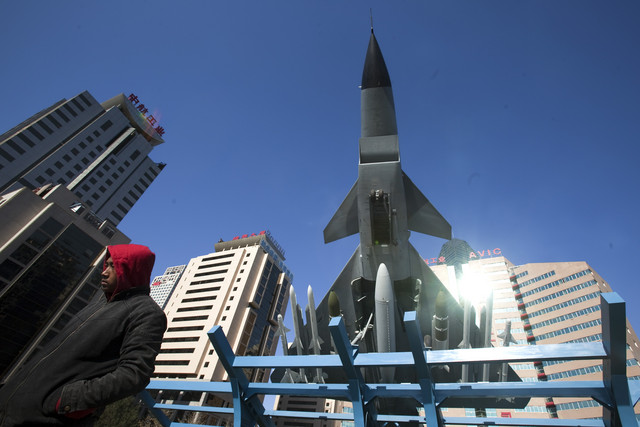 China Aerospace Science & Industry Corp., the nation’s biggest maker of non-military unmanned aircraft, expects to double sales next year as sovereignty disputes spur government orders.
China Aerospace Science & Industry Corp., the nation’s biggest maker of non-military unmanned aircraft, expects to double sales next year as sovereignty disputes spur government orders.
The country intends to increase monitoring at sea amid a row with Japan about the ownership of islands in the East China Sea, Huang Xingdong, deputy head of CASIC’s drone-making arm, said in a Nov. 13 interview at the Zhuhai airshow. The state- owned company signed an agreement to supply an undisclosed number of unmanned aircraft to an oceanic agency at the expo.
“The government is attaching greater importance to ocean intelligence gathering as the islands disputes heat up,” Huang said. He declined to give an exact sales forecast. The company also makes missiles and parts for China’s space programme.
Aviation Industry Corp. of China, the nation’s largest aerospace company, separately debuted the armed Wing Loong UAS at the show, as China translates economic growth into increasing military might. The country, the biggest spender on defence after the U.S., began sailing its first aircraft carrier this year and it’s working on more sophisticated fighter jets, naval vessels and cyberwarfare technology
CASIC showcased six civilian and military drones at the Zhuhai show, and unveiled a new brand name, Hiwing, which means Sea Hawker in Chinese. Its UAS can fly as fast as 700 kilometers per hour (435 miles per hour) and carry as much as 130 kilograms (287 pounds).
The company sold several dozen UAS in the past few years, with prices ranging from less than 1 million yuan ($160,000) to about 10 million yuan, Huang said. The local non-military UAS market may eventually grow to as big as several billion yuan a year, he said. He didn’t give an estimate for defence sales.
“The China drone market is not big, but it’s starting an upward cycle,” Huang said. The company also announced an order from a government surveying agency at the show.
The dispute over East China Sea islands caused China’s relations with Japan to reach their lowest since at least 2005 in September. Demonstrators marched in cities across China and attacked Japanese businesses after Japan’s government bought the islands from a private owner.
Xi Jinping yesterday replaced Hu Jintao as the head of China’s Communist Party and as chairman of the party’s Central Military Commission. Japanese Prime Minister Yoshihiko Noda plans to dissolve parliament today, triggering elections that polls indicate will be won by former Prime Minister Shinzo Abe, who advocates a tougher stance in the territorial dispute.
Source: Bloomberg Business Week
